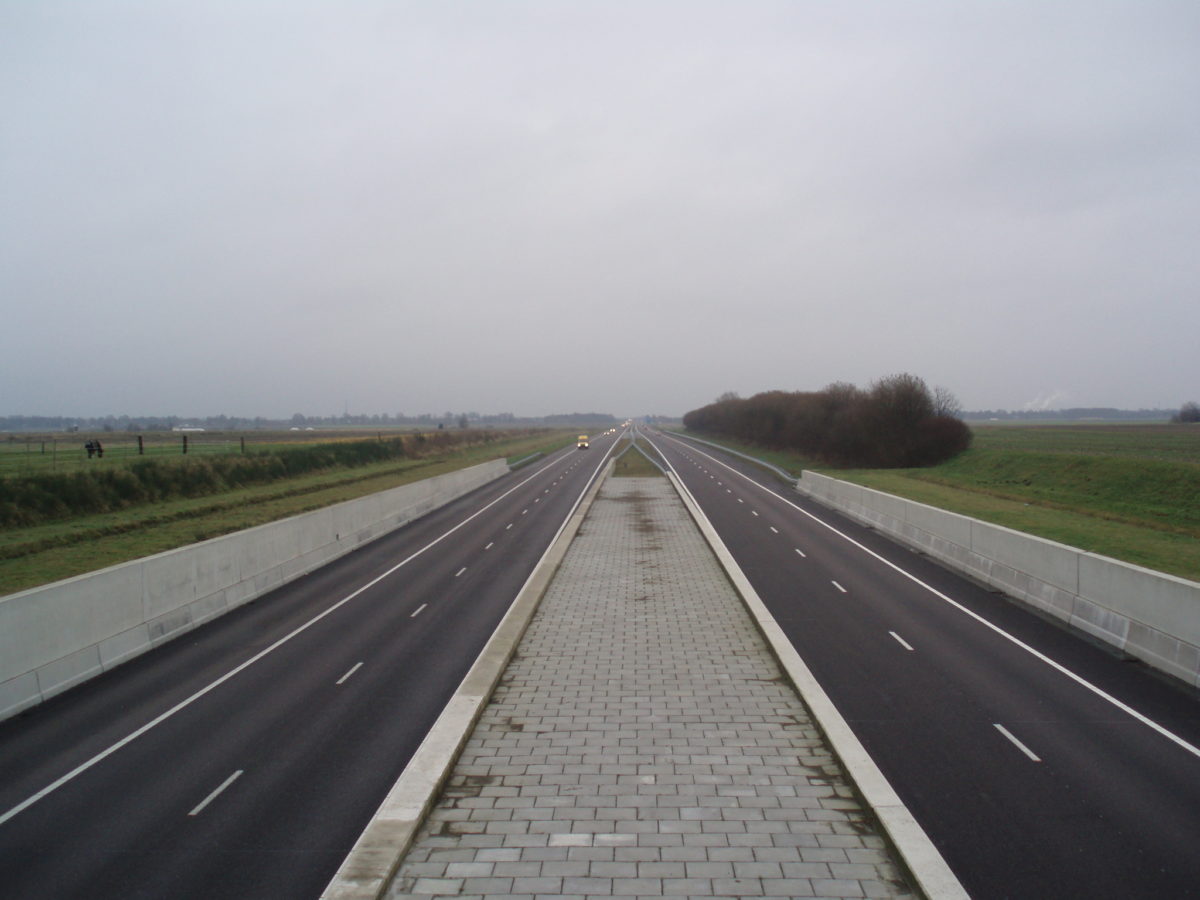Rijkswaterstaat – the water management agency of the Netherlands, under the Ministry of Infrastructure and Water Management – plans to deploy a large-scale solar plant along the length of the A37 highway, in the northeastern province of Drenthe.
The agency is now holding meetings with the Drenthe provincial government and the municipalities of Coevorden, Emmen, and Hoogeveen – as well as network operator Enexis Groep and distribution system operator Rendo – to discuss how the solar park will be developed.
The project, which is part of a government program to build renewable energy pilot projects on state land, will involve the installation of PV modules along either side of a 40-kilometer (25 miles) stretch of the highway, in addition to solar panels on the median strip between the two lanes. The project will span roughly 300 hectares in total, and will be built without having a strong visual impact on the surrounding landscape, Rijkswaterstaat explained. The agency conducted a preliminary spatial exploration study for the project in 2016.
In October 2017, Netherlands-based construction firm Heijmans announced plans to build noise barriers featuring integrated bifacial solar modules along several highways in the Netherlands. Its first project, finalized last February, is a 400-meter stretch of the A50, near the southeastern town of Uden.
Popular content
The Rijkswaterstaat has used the installation to study the feasibility of installing even more solar noise-barrier projects. The European Commission has since financed a new €1.4 million project – run by the Rijkswaterstaat, the Energy Research Centre of the Netherlands, and the Solar Energy Application Community – to accelerate the use of PV on noise barriers along Europe’s main roads.
In September 2018, the agency also announced plans to test the feasibility of solar roads as an alternative to the construction of big solar projects. “Finding space for the generation of solar energy requires creativity,” the agency said.
Rijkswaterstaat started to look for alternative surfaces on which to deploy solar in March 2017, when it announced a plan to use water surfaces and state land for PV arrays and other renewable energy projects.
This content is protected by copyright and may not be reused. If you want to cooperate with us and would like to reuse some of our content, please contact: editors@pv-magazine.com.



As an Australian I thank the EU and Dutch Government for their innovative exploration of solar PV deployment. My country is the Saudi Arabia of coal, stoking global warming and igniting itself in the process. Solar, wind, hydro, and battery storage must replace coal for electricity generation. My government is trapped in its own dishonesty about climate change. I need others to lead the way and rescue Australia.
Good way to use of land
My concern would be how much energy would actually be captured?
With high sided vehicles (coaches, lorries) shadowing the panels, and Netherlands receives it’s fair share of rain, so how mucky will the panels become from road spray? Surely that will severely affect the panels performance.